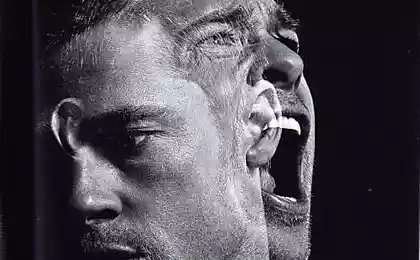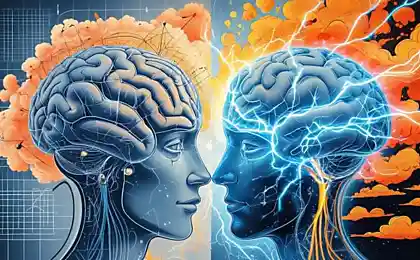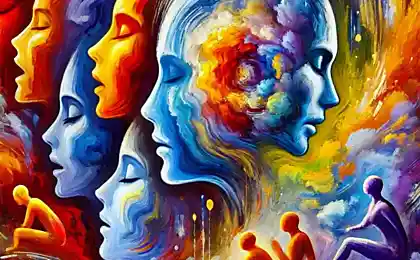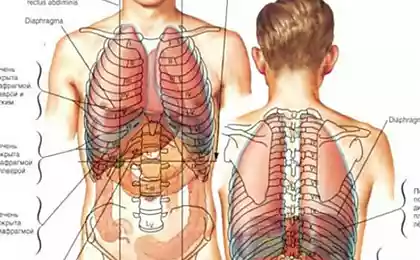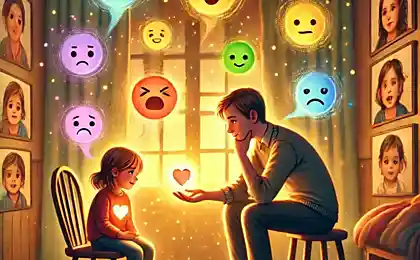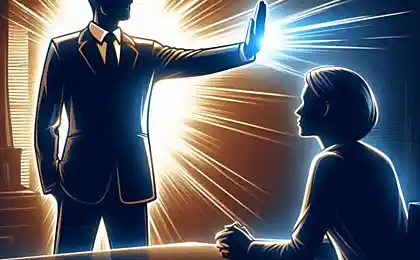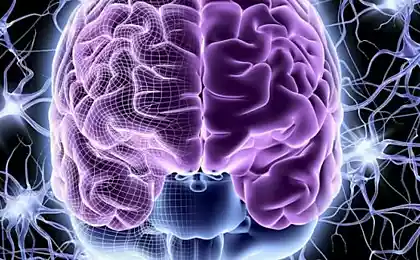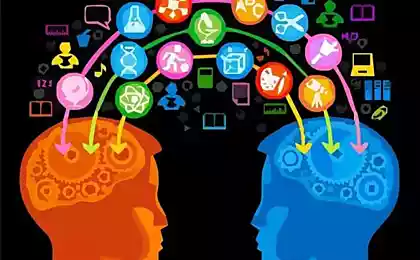550
Without emotion, rational behavior would be impossible: neuroscientists about the mechanics of decision-making
Where some disciplines appeared neuroeconomics?
Zubarev: Economic theory for centuries trying to simulate human behavior. In classical Economics, it was a model of rational behavior, where people tried to maximize their well-being. But the economic crises, which in the XX century has become systemic in nature, showed that predictions based on these models, ineffective. As a result, areas such as behavioral and experimental Economics. The researchers moved from the study of ideal models and examined empirically observed behavior.
Relatively recently in neuroscience appeared methods that have allowed non-invasive study of human brain activity. Arose a natural question: can we use knowledge about the brain in order to build more sophisticated models of decision-making? Thus, we can say that neuroeconomics — the neurobiology of decision-making.
Shestakova: Recently, if you asked an economist: "How do you like your wife?"he would say, "compared to what?". It was not a quantitative description of the phenomena of consumer preferences, which would possess predictive power. So economists are used not absolute, but relative units: I love this product more than the other. It turned out that neuroscience can offer a quantitative description of preferences: for example, such economic criterion as subjective utility can be measured in absolute units, the frequency of discharge of neurons.
"Famous American neuroscientist Antonio Damasio studied patients who suffered a stroke in orbitofrontal cortex is an important part of the emotional system of the brain. After the accident, the behavior of such people becomes less emotional. It turned out that without emotion you don't become rational and intelligent. On the contrary, your behavior becomes irrational»— You can tell how much emotions affect decision making?
Shestakova: Nobel laureate Daniel Kahneman introduced into the economy in some sense the Platonic idea of two systems — the rational and the irrational, who are involved in decision-making. Irrational system — fast, efficient — more evolutionary young, complex, and therefore slow. When walking in the forest, you see a branch, similar to a snake, you first instinctively jump back and only then realize that danger was about.
Zubarev: Something called emotion is evolutionarily more ancient, and extremely important mechanism, whose main task — to ensure survival. If you are in danger for a long time pondering over how to avoid it — not the most efficient method. What greater danger do you feel when taking a decision, the less likely that your response can be called reasonable and prudent.
It is important to specify that is not quite right to oppose the rational to the emotional. From a biological point of view, it is a single system that learns and responds to changes in the external world. Without emotion, rational behavior would be impossible. A very simple example: if, having failed, we have not experienced negative emotions, it would continually step on the same rake, not making for themselves any conclusions.
Shestakova: Famous American neuroscientist Antonio Damasio studied patients who suffered a stroke in orbitofrontal cortex is an important part of the emotional system of the brain. After the accident, the behavior of such people becomes less emotional. It seemed that now they will have to work out a rational solution. Nothing of the sort. Not being able to assess the emotional reaction of others to their actions, these people began to commit stupid mistakes: for example, began to quarrel in the family and at work, which indicates a subtle balance between rational and emotional systems. Without emotion you don't become rational and intelligent. On the contrary, your behavior becomes irrational.
"People can have a very quiet temperament, belong to the extreme phlegmatic psycho, but that doesn't mean that he would not experience emotions. Lack of emotion can sometimes be an advantage. You can suffer autism, for example, and make a good career in the stock market, because your decisions will not be subject to the universal hysteria" Is an experimental paradigm in which we study the correlation of rational and emotional. Imagine a game of "Ultimatum", when you give a friend money, and whoever begins, can the money be divided as it sees fit. If you give the opponent less a part of that, of course, outraged. He raises the following dilemma: we can agree to take a smaller portion or to opt out of money — in this case you both get nothing. From the point of view of classical rationality, it is surprising that many people chose the latter and remained with nothing, despite the fact that it is not economically feasible.
Ninety two million four hundred twenty nine thousand nine hundred seventy
Zubarev A : our main interest is the neurobiological basis of decision-making in a social context. The highest forms of social behavior has arisen in the process of evolution when the animals have developed mechanisms to inhibit aggressive reactions in relation to members of their own species, and Vice versa, learn to cooperate, learn from each other's skills and knowledge. Complex types of social interaction are hardly possible, while there is a risk of being eaten or killed. As rational thinking is hardly possible in a dangerous situation.
— How does this compare with people who do not feel emotion?
Shestakova Emotional frigidity may be different. There are people that have damaged certain areas of the brain (e.g., amygdala, or special areas of the cortex), and they can't perceive someone else's emotional expression. They look at you and I can't say whether you are surprised or scared, and sometimes can't handle certain emotions. They can even be taught to recognize the emotional state of other people — for example, the movement of the facial muscles, but they will never be able to understand what it is to experience it first hand.
Zubarev: A person can have a very quiet temperament, belong to the extreme phlegmatic psycho, but that doesn't mean that he would not experience emotions. Lack of emotion can sometimes be an advantage. You can suffer autism, for example, and make a good career in the stock market, because your decisions will not be subject to all the hysteria. But autism — a violation of social emotions, the ability to understand emotions of each other.
— What problems and benefits creates a trend towards a permanent increase in choice?
Zubarev: Here I quote the famous St. Petersburg scientist Batueva: "in order to perform an action, you should first not do anything else." Indeed, when you are in a situation of choice, then nothing else you more and not do it. The more degrees of freedom, the less you actually live and act.
— Are there any examples of situations when a person realizes that he made the right decision, but feels the unbearable bad?
Zubarev: The most common example of this situation — the various moral dilemmas — for example, "the tram dilemma." Imagine that you are standing on the bridge and see that the tram is out of control, flying into a crowd of five people. You have the power to switch the lever and redirect the tram on the adjacent track where there is only one person. On the one hand, of course, murder. On the other hand is a "simple arithmetic," as Raskolnikov in "Crime and punishment". And many say they are ready to switch the lever. On the other hand, in a similar situation, when you're on the bridge is a very fat man you can push under a tram, thereby saving the lives of those same five people on the tracks, such an effect is ready to make not all. From a rational point of view, the effect is the same, but with the emotional side there is a difference.
— Tell us about your area of research — the neurobiology of social influence.
Zubarev Social influence is how other people affect our actions, actions, and decisions. From an evolutionary point of view, the strategy followed by most individuals of the population, is preferable to all other alternatives because it has proven its superiority. A rational decision can always be considered as following the majority. In this sense, the "conformity" — the only correct strategy to survive, because the deviation from the optimal strategy is punished in the course of natural selection.
— It turns out that the overall taste and presentation begin to affect my physiological reaction to different things?
Zubarev In that case. If in fashion now red, and all around like the color red, you also genuinely begin to love him. It's a biological process, it occurs automatically. At the University of California conducted an experiment: students were assessed by t-shirts, and they pointed out two other people's evaluations from the other groups of students and groups of persons convicted of sexual offences. It was found that identification with a particular group really influences your choice.
Forgotten memories suddenly emerge in our memory. Some older people get very detail to remember his childhood. When we are young, there is little we can remember from that time. And when the bonds formed later, gradually begin to weaken, memories laid down in early childhood, suddenly think of, and they have always been there»— A similar "imposed" sympathy have a temporary effect?
Shestakova: Human behavior — the system is plastic, and it is constantly changing. Developed the conditioned reflexes and the Association does not disappear, only veternarians new associations and is also layered on top. For example, in the practice of the treatment of drug addicts is often that after full recovery, they still can suddenly start breaking. Now there for neuroeconomics models that explain the emergence of drug addiction in the process of conditioned reflex training.
Zubarev: Forgotten memories suddenly emerge in our memory. Some older people get very detail to remember his childhood. When we are young, there is little we can remember from that time. And when the bonds formed later, gradually begin to weaken, memories laid down in early childhood, suddenly think of, and they have always been there.
— Percentage of people who did not succumb to the majority opinion?
Zubarev: Difficult to judge. The sample, which implies a brain scan, usually consists of 20-30 people. But considering all similar experiments, we can say that 5-10% of subjects did not succumb to the influence.
Shestakova: I also think that the tails of the normal distribution. These "white crows" is also built on leadership psychology. I do not take Spartacus, but when everyone thinks that the sun revolves around the Earth, there are such people as Galileo, who say: "Look, it's not like that".
Fifty four million sixty five thousand seven hundred thirty
The book Jonah Lehrer "How we decide" is one of the most famous works in the field of neuroeconomics. The author believes that the ability to make a free choice makes us human
At the same time, there is a concept wisdom of the crowd, the genius of the crowd. One of the famous English aristocrat Francis Galton found that in determining the weight of a bull in the eyes of average opinion eight farmers will be more accurate than the conclusion of highly educated experts. So the opinion of the crowd is quite sensible! If we talk about the evolutionary aspects of social influence, from the point of view of survival, the opinion of the crowd is often more accurate than individual opinion. If you ask a large group of people to get to the center of the target, the more shots will be made, the more likely you have the outline for itself a target. So is the opinion of the majority. The scatter is large, but the average value will be very close to the truth.
Such automatic conformity is an effective strategy at the stage of natural selection, but it can also play havoc and lead to unexpected consequences in modern society. In the evolution of individuals taking wrong decisions, are dying, and if you see behavior that demonstrates most of the population, it should adhere to, to increase your chances of survival. On the other hand, the poor lemmings because of this, sometimes killing entire flocks.
Source: theoryandpractice.ru
Zubarev: Economic theory for centuries trying to simulate human behavior. In classical Economics, it was a model of rational behavior, where people tried to maximize their well-being. But the economic crises, which in the XX century has become systemic in nature, showed that predictions based on these models, ineffective. As a result, areas such as behavioral and experimental Economics. The researchers moved from the study of ideal models and examined empirically observed behavior.
Relatively recently in neuroscience appeared methods that have allowed non-invasive study of human brain activity. Arose a natural question: can we use knowledge about the brain in order to build more sophisticated models of decision-making? Thus, we can say that neuroeconomics — the neurobiology of decision-making.
Shestakova: Recently, if you asked an economist: "How do you like your wife?"he would say, "compared to what?". It was not a quantitative description of the phenomena of consumer preferences, which would possess predictive power. So economists are used not absolute, but relative units: I love this product more than the other. It turned out that neuroscience can offer a quantitative description of preferences: for example, such economic criterion as subjective utility can be measured in absolute units, the frequency of discharge of neurons.
"Famous American neuroscientist Antonio Damasio studied patients who suffered a stroke in orbitofrontal cortex is an important part of the emotional system of the brain. After the accident, the behavior of such people becomes less emotional. It turned out that without emotion you don't become rational and intelligent. On the contrary, your behavior becomes irrational»— You can tell how much emotions affect decision making?
Shestakova: Nobel laureate Daniel Kahneman introduced into the economy in some sense the Platonic idea of two systems — the rational and the irrational, who are involved in decision-making. Irrational system — fast, efficient — more evolutionary young, complex, and therefore slow. When walking in the forest, you see a branch, similar to a snake, you first instinctively jump back and only then realize that danger was about.
Zubarev: Something called emotion is evolutionarily more ancient, and extremely important mechanism, whose main task — to ensure survival. If you are in danger for a long time pondering over how to avoid it — not the most efficient method. What greater danger do you feel when taking a decision, the less likely that your response can be called reasonable and prudent.
It is important to specify that is not quite right to oppose the rational to the emotional. From a biological point of view, it is a single system that learns and responds to changes in the external world. Without emotion, rational behavior would be impossible. A very simple example: if, having failed, we have not experienced negative emotions, it would continually step on the same rake, not making for themselves any conclusions.
Shestakova: Famous American neuroscientist Antonio Damasio studied patients who suffered a stroke in orbitofrontal cortex is an important part of the emotional system of the brain. After the accident, the behavior of such people becomes less emotional. It seemed that now they will have to work out a rational solution. Nothing of the sort. Not being able to assess the emotional reaction of others to their actions, these people began to commit stupid mistakes: for example, began to quarrel in the family and at work, which indicates a subtle balance between rational and emotional systems. Without emotion you don't become rational and intelligent. On the contrary, your behavior becomes irrational.
"People can have a very quiet temperament, belong to the extreme phlegmatic psycho, but that doesn't mean that he would not experience emotions. Lack of emotion can sometimes be an advantage. You can suffer autism, for example, and make a good career in the stock market, because your decisions will not be subject to the universal hysteria" Is an experimental paradigm in which we study the correlation of rational and emotional. Imagine a game of "Ultimatum", when you give a friend money, and whoever begins, can the money be divided as it sees fit. If you give the opponent less a part of that, of course, outraged. He raises the following dilemma: we can agree to take a smaller portion or to opt out of money — in this case you both get nothing. From the point of view of classical rationality, it is surprising that many people chose the latter and remained with nothing, despite the fact that it is not economically feasible.
Ninety two million four hundred twenty nine thousand nine hundred seventy
Zubarev A : our main interest is the neurobiological basis of decision-making in a social context. The highest forms of social behavior has arisen in the process of evolution when the animals have developed mechanisms to inhibit aggressive reactions in relation to members of their own species, and Vice versa, learn to cooperate, learn from each other's skills and knowledge. Complex types of social interaction are hardly possible, while there is a risk of being eaten or killed. As rational thinking is hardly possible in a dangerous situation.
— How does this compare with people who do not feel emotion?
Shestakova Emotional frigidity may be different. There are people that have damaged certain areas of the brain (e.g., amygdala, or special areas of the cortex), and they can't perceive someone else's emotional expression. They look at you and I can't say whether you are surprised or scared, and sometimes can't handle certain emotions. They can even be taught to recognize the emotional state of other people — for example, the movement of the facial muscles, but they will never be able to understand what it is to experience it first hand.
Zubarev: A person can have a very quiet temperament, belong to the extreme phlegmatic psycho, but that doesn't mean that he would not experience emotions. Lack of emotion can sometimes be an advantage. You can suffer autism, for example, and make a good career in the stock market, because your decisions will not be subject to all the hysteria. But autism — a violation of social emotions, the ability to understand emotions of each other.
— What problems and benefits creates a trend towards a permanent increase in choice?
Zubarev: Here I quote the famous St. Petersburg scientist Batueva: "in order to perform an action, you should first not do anything else." Indeed, when you are in a situation of choice, then nothing else you more and not do it. The more degrees of freedom, the less you actually live and act.
— Are there any examples of situations when a person realizes that he made the right decision, but feels the unbearable bad?
Zubarev: The most common example of this situation — the various moral dilemmas — for example, "the tram dilemma." Imagine that you are standing on the bridge and see that the tram is out of control, flying into a crowd of five people. You have the power to switch the lever and redirect the tram on the adjacent track where there is only one person. On the one hand, of course, murder. On the other hand is a "simple arithmetic," as Raskolnikov in "Crime and punishment". And many say they are ready to switch the lever. On the other hand, in a similar situation, when you're on the bridge is a very fat man you can push under a tram, thereby saving the lives of those same five people on the tracks, such an effect is ready to make not all. From a rational point of view, the effect is the same, but with the emotional side there is a difference.
— Tell us about your area of research — the neurobiology of social influence.
Zubarev Social influence is how other people affect our actions, actions, and decisions. From an evolutionary point of view, the strategy followed by most individuals of the population, is preferable to all other alternatives because it has proven its superiority. A rational decision can always be considered as following the majority. In this sense, the "conformity" — the only correct strategy to survive, because the deviation from the optimal strategy is punished in the course of natural selection.
— It turns out that the overall taste and presentation begin to affect my physiological reaction to different things?
Zubarev In that case. If in fashion now red, and all around like the color red, you also genuinely begin to love him. It's a biological process, it occurs automatically. At the University of California conducted an experiment: students were assessed by t-shirts, and they pointed out two other people's evaluations from the other groups of students and groups of persons convicted of sexual offences. It was found that identification with a particular group really influences your choice.
Forgotten memories suddenly emerge in our memory. Some older people get very detail to remember his childhood. When we are young, there is little we can remember from that time. And when the bonds formed later, gradually begin to weaken, memories laid down in early childhood, suddenly think of, and they have always been there»— A similar "imposed" sympathy have a temporary effect?
Shestakova: Human behavior — the system is plastic, and it is constantly changing. Developed the conditioned reflexes and the Association does not disappear, only veternarians new associations and is also layered on top. For example, in the practice of the treatment of drug addicts is often that after full recovery, they still can suddenly start breaking. Now there for neuroeconomics models that explain the emergence of drug addiction in the process of conditioned reflex training.
Zubarev: Forgotten memories suddenly emerge in our memory. Some older people get very detail to remember his childhood. When we are young, there is little we can remember from that time. And when the bonds formed later, gradually begin to weaken, memories laid down in early childhood, suddenly think of, and they have always been there.
— Percentage of people who did not succumb to the majority opinion?
Zubarev: Difficult to judge. The sample, which implies a brain scan, usually consists of 20-30 people. But considering all similar experiments, we can say that 5-10% of subjects did not succumb to the influence.
Shestakova: I also think that the tails of the normal distribution. These "white crows" is also built on leadership psychology. I do not take Spartacus, but when everyone thinks that the sun revolves around the Earth, there are such people as Galileo, who say: "Look, it's not like that".
Fifty four million sixty five thousand seven hundred thirty
The book Jonah Lehrer "How we decide" is one of the most famous works in the field of neuroeconomics. The author believes that the ability to make a free choice makes us human
At the same time, there is a concept wisdom of the crowd, the genius of the crowd. One of the famous English aristocrat Francis Galton found that in determining the weight of a bull in the eyes of average opinion eight farmers will be more accurate than the conclusion of highly educated experts. So the opinion of the crowd is quite sensible! If we talk about the evolutionary aspects of social influence, from the point of view of survival, the opinion of the crowd is often more accurate than individual opinion. If you ask a large group of people to get to the center of the target, the more shots will be made, the more likely you have the outline for itself a target. So is the opinion of the majority. The scatter is large, but the average value will be very close to the truth.
Such automatic conformity is an effective strategy at the stage of natural selection, but it can also play havoc and lead to unexpected consequences in modern society. In the evolution of individuals taking wrong decisions, are dying, and if you see behavior that demonstrates most of the population, it should adhere to, to increase your chances of survival. On the other hand, the poor lemmings because of this, sometimes killing entire flocks.
Source: theoryandpractice.ru
Robert Mendelsohn: How to raise a healthy child in spite of the doctors 2
Can the milky Way galaxy to be a portal to a distant universe





